Odafe Atogun
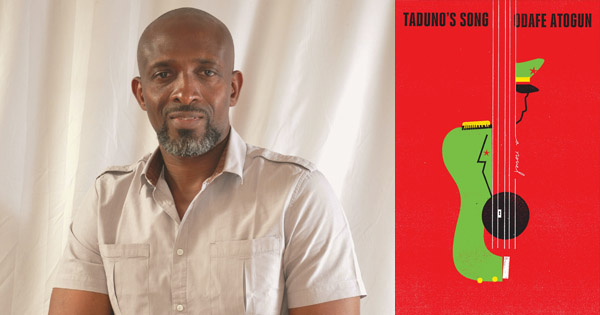
Photo Credit: Adebayo Adekunle
In Taduno's Song, Nigerian author Atogun combines a retelling of the Orpheus myth with a Kafkaesque meditation on identity in a powerful novel about a musician who runs afoul of the ruthless Nigerian government. His picks are a Nobel winner and a debut novelist.
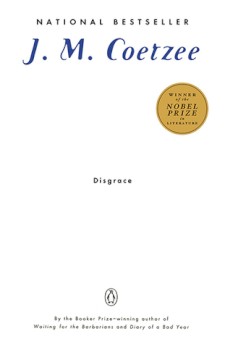
1. Disgrace by J. M. Coetzee - In Disgrace, a middle-aged professor of Romantic poetry finds himself observing the ritual of a relatively happy life in which his sexual needs are adequately taken care of. He appears to be content but secretly yearns for more. Disturbed by the knowledge that his old charms have fled him, he finds comfort in an anxious flurry of promiscuity. An enchanting liaison with a prostitute is followed by a reckless affair with a young student, and his "ordered" existence becomes shattered.
Coetzee weaves with brutal, admirable grace a troubling story in which the professor, in a bid to escape the consequences of his action, finds refuge in his daughter’s isolated smallholding in post-apartheid South Africa where retributive violence is stoked by racial conflicts. There the turn of events will afflict him with punishments worse than he could possibly bear, leaving his innocent daughter a victim; leaving also, the lasting message that retribution must be avoided if we are to ultimately escape its ugly legacies. In the incontrovertible disgrace of a once-brilliant professor, lessons are there to be learned for a nation torn by racial divisions.
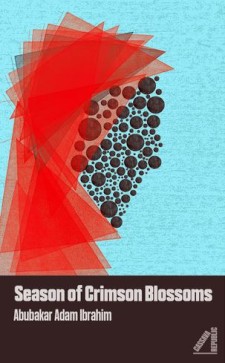
2. Season of Crimson Blossoms by Abubakar Adam Ibrahim - Season of Crimson Blossoms is a beautiful-sad story told with great artistry. Against a backdrop of tragic family histories brought about by ruthless politicking and religious extremism, Binta, a devout middle-aged Muslim widow, and Reza, a young weed-smoking gangster, begin an illicit affair.
Haunted by the painful memory of loss in a hypocritical society which uses religion to promote hatred and violence, Binta experiences a primal desire to save her lover from a life of crime. But is it love or the quest for redemption that emboldens her to listen to her heart for once? A combination of both, maybe?
Whatever, it is an affair that foretells grave danger, for Binta especially. But already held a prisoner by the hopeless yearnings of her own heart, she finds it impossible to apply the brakes. And as the affair festers and consumes her and her lover, Binta realizes that she is living in a society that will never allow her to find love, even if she chooses to steal it. As for Reza, he is confined by society never to find fulfillment, not even redemption.
Peter Kimani
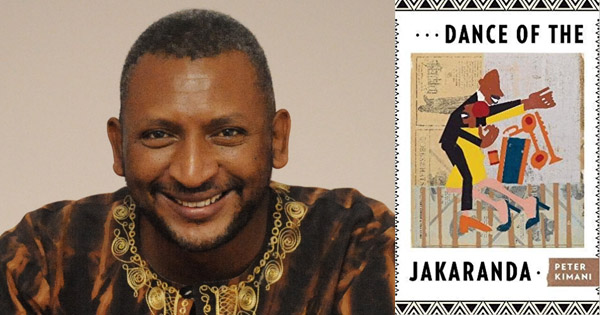
Photo Credit: Yusuf Wachira
Highlighted by its exquisite voice, Kimani's Dance of the Jakaranda illustrates the discordant history of East Indians in Kimani's native Kenya, centered on the construction of a railroad connecting Lake Victoria and the Indian Ocean at the end of the 19th century. Kimani's selections are a what he calls a "deceptively simple novel" and Ngugi wa Thiong'o's influential novel about the effects of political independence on ordinary Kenyan citizens.
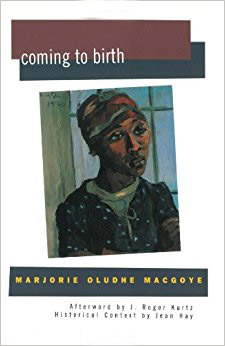
3. Coming to Birth by Marjorie Oludhe MacGoye - This deceptively simple novel is about a young woman, coming of age at a time of rapid social change in Kenya. The wind of change is blowing through the land as Kenya gains independence and Paulina, only 16, arrives in the city to join her new husband, Martin. A recent arrival in the city himself, Martin straddles the rural and urban divide: his visions of life are often seen through the side-mirror, peering into a past that he lived in the village.
The uncertainty that abounds as Paulina navigates the city’s labyrinth reflects the anxieties that roil the land. For a while, Martin’s heavy-handedness procures her cooperation, but does not quell her desire for self-reliance and self-discovery.
Paulina’s journey towards freedom appears promising: a short-lived affair produces a child that Martin was unable to sire, and her professional career is blooming. But just as politicians trade away the promises of independence, the nation implodes in a rictus of riots that subsume her private dream.
MacGoye’s vision of Kenya is prophetic and Coming to Birth remains a cautionary tale about this great land, whose promise is saddled with peril, prolonging birth pains of the nation-building project.
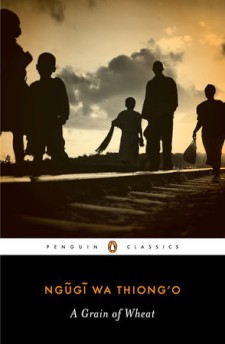
4. A Grain of Wheat by Ngugi wa Thiong’o - Of the several dozen texts produced by Kenya and Africa’s foremost author, Ngugi wa Thiong’o, A Grain of Wheat remains a favorite. Forming part of his foundational trilogy— others are Weep Not, Child, and The River Between—this novel evaluated what political independence heralded for ordinary citizens in Kenya.
The narrative unfurls in a space of ten days before Independence celebrations in 1963, and captures the anxieties that linger as each group reviews what has been lost, and gained, as black majoritarian rule succeeds colonialism.
Echoes of Kenya’s freedom struggle pulsate through the book, as do the heroic deeds of ordinary folks in defense of their land against the Brits. The dominant narrative is that of Mugo, a hermit that locals mistake for a freedom hero, but who is privately burdened by troubles of his own. His unraveling signals the novel’s denouement.
What’s remarkable about this novel is that its political message does not compromise its artistic sophistication—as some critics lament of Ngugi’s subsequent offerings. The characters are complex and well-developed, the storyline unpredictable and absorbing.
From his lengthy and productive literary life, lasting more than half a century, A Grain of Wheat is an example of Ngugi at his finest.
Alain Mabanckou
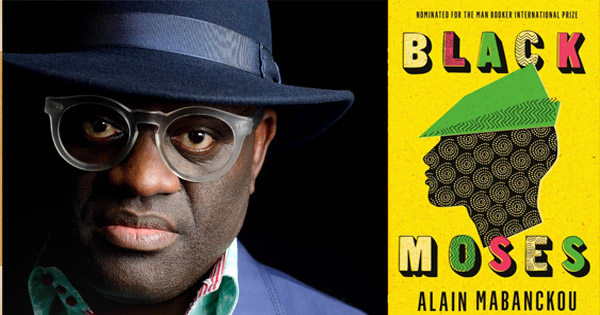
Photo Credit: Hermance Triay
Mabanckou's wacky, vibrant Black Moses, a small book with a big narrative voice, follows the adventures of an orphan who journeys to the city of Pointe-Noire, Republic of the Congo, where he strikes out on a last noble and violent quest. Mabanckou, who was born in Congo in 1966, selects an investigation of the Rwandan genocide and a short story collection that bridges the Atlantic.
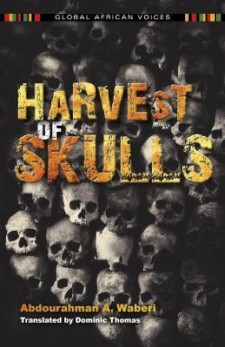
5. Harvest of Skulls by Abdourahman A. Waberi - Harvest of Skulls revisits the genocide that took place in Rwanda in 1994 that resulted in more than a million deaths. Franco-Djiboutian author Abdourahman Waberi, one of francophone Africa’s leading voices, visited Burundi and Rwanda on several occasions in the aftermath of the genocide under the aegis of the Writing by Duty of Memory project, an initiative launched by the Fest’Africa Festival. Waberi’s book delivers an original narrative that is at the same time a journey through a turbulent continent.
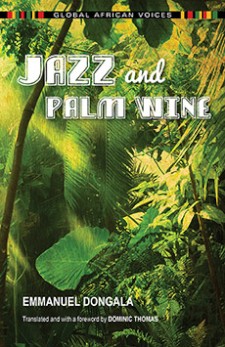
6. Jazz and Palm Wine by Emmanuel Dongala - This collection of short stories, considered a classic work of African literature by the Congolese writer Emmanuel Dongala, is situated on both sides of the Atlantic. Navigating between Africa and America, from the Communist experiments and ideals that defined the early years of political independence, considerations of the impact of brutal and repressive dictatorships, African mysticism, to the trials and tribulations of African America during the 1960s, framed in a profound fascination for jazz music in which the author finds equilibrium and salvation.
Jennifer Nansubuga Makumbi
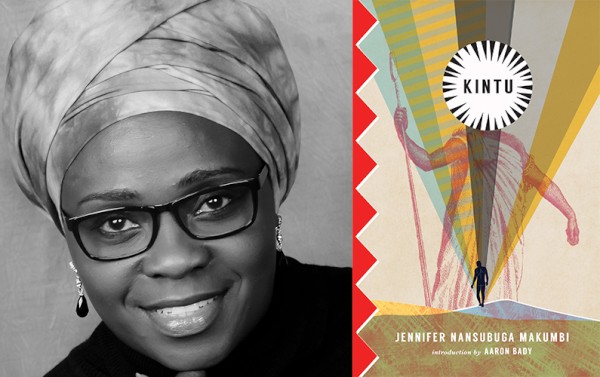
Makumbi's sweeping epic, Kintu, explores her native Uganda’s national identity through a brilliant interlacing of history, politics, and myth, tracing a curse on a family bloodline through the centuries. Her picks are Chinua Achebe's classic as well as Ben Okri's Man Booker-winning novel.
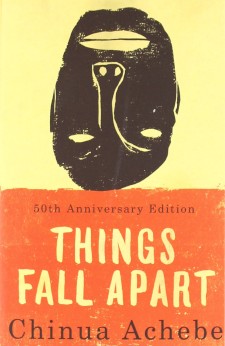
7. Things Fall Apart by Chinua Achebe - It should be frustrating for new writers like me to watch this novel hog the limelight year after year. Whenever a new writer pops up, the West proclaims a new Achebe: a recycling of talent, if you ask me. Recently, on the way back from Ake Festival, Ngugi wa Thiong'o remarked that he reads the text every year but it still manages to surprise him. Ezra Pound came to mind: Literature is news that stays news. However, there was a time, in the 1980s, when it seemed like the novel would not survive feminist indictment. Florence Stanton asked how things could fall apart for women who were “systematically excluded from the political, the judicial and even the discoursal life of the community?” But then Post-colonial investigation intensified and the novel repositioned itself. Recently, I read it through masculinities and queer lenses: guess what? Way back in the 1950s, Achebe was not just exploring transgressing masculinities, he was examining the deep fear of and persecution of femininity. Sorry, Stanton: it’s a feminist novel after all. The anonymous “things” in the title will keep propelling this novel long after you and I are forgotten, tsk!
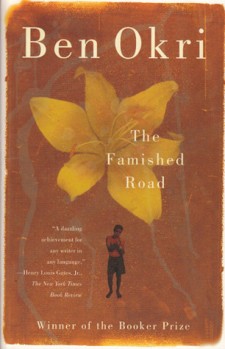
8. The Famished Road by Ben Okri - In the current atmosphere of anti-migration in the world—the rise of the far-right in Europe, Brexit in Britain, Trump in the U.S., and xenophobia in South Africa—one wonders whether Azaro, the Abiku in Ben Okri’s The Famished Road, would still migrate from spirit to human realm. Abiku are spirit children whose life cycles through birth, death, and rebirth. It is a game they play on their human parents. However, out of love of his mother, Azaro has defected; he does not die. His spirit companions, enraged, torture him relentlessly. But Azaro has also given up a spirit world of magical beauty, a world that transcends geographical, racial, and cultural restriction, where mythical figures from different cultures coexist for a life circumscribed by race, place, and culture. He lives in a single room in a slum in Nigeria. Okri remains incisive on human inadequacies and the bullying of younger nations by developed ones.
Yewande Omotoso
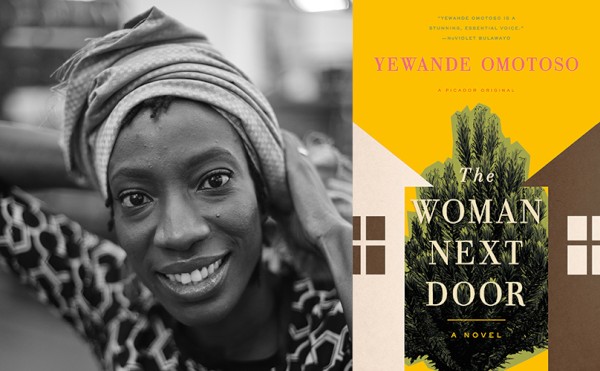
Photo Credit: Victor Dlamini
In Omotoso's charming and incisive The Woman Next Door, two Cape Town women, one black and one white, are neighbors who discover after 20 years of exchanging digs and insults that they might help each other. Omotoso, who has lived in South Africa since 1992, picks Sefi Atta's novel about a woman returning home from London to Lagos, and Fiston Mwanza Mujila's haunting Tram 83.
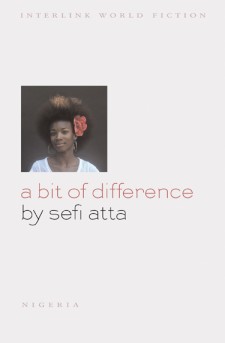
9. A Bit of Difference by Sefi Atta - There is a way in which the details of this book imbue all the characters, from the major to the walk-ons, with an exuberance that means they live beyond the page. After living in London for many years and working as a financial expert for an international charity, 39-year-old Deola Bello returns home to her ultra-wealthy family in Ikoyi, Lagos, on the occasion of her father’s five-year memorial service. But there is also a listlessness to her life that makes the homecoming all the more portentous. The novel seems to move on the engine of anecdotes. Back home, Deola’s mother nags her about the lack of grandchildren; through the lives of Deola’s sisters-in-law we observe the sober realities of patriarchy. In a precise and blistering scene, Atta gives a picture of the Lagos elite: "Nigeria is where they are called 'Madam' and treated with respect. They pass on their sense of entitlement to their children through estates. They are Nigerian Tories." The tone is wry, often caustic, but also humorous and moving. I enjoyed the unabashed presence of opinions and I got the sense that Atta doesn’t feel the need to disguise ideas and debate in fiction, that for her (and I am thankful for this) they are one and the same.
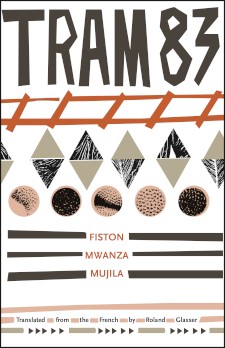
10. Tram 83 by Fiston Mwanza Mujila - Tram 83 is a bar in an unnamed African country, possibly Lubumbashi, Democratic Republic of the Congo. A bar to rival all bars, perhaps the most intriguing and heart-breaking of bars I’ve ever come upon in a novel. At the entrance to the watering hole is a sign: “ENTRY INADVISABLE FOR THE POOR, THE WRETCHED, THE UNCIRCUMCISED, HISTORIANS, ARCHAEOLOGISTS, COWARDS, PSYCHOLOGISTS…” and the list continues. This novel is full of lists, repeated unanswered questions and really long sentences. There is a playfulness in the words, an effective carelessness that reveals the painstaking poet. The story of two friends, Lucien the writer and Requiem the crook, is told through their antics and conversations, the style frenetic. You could read Tram 83 as a ridiculous comedy or as a Kafkaesque tale. You could read it as bleak political commentary, that the “City-State,” somewhere beyond, has failed but also the world has failed, and people (men) come to Tram 83 to recover from their "bogus lives." I was abraded by the fact that nearly all the women in the story are selling their bodies, only ever (thinly and rather brutally at that) characterized as the purveyors of sex. Beyond the brilliant and seductive riffs, I found this story problematic at times but also satisfyingly haunting in its juggling of depravity and hope.
No comments:
Post a Comment